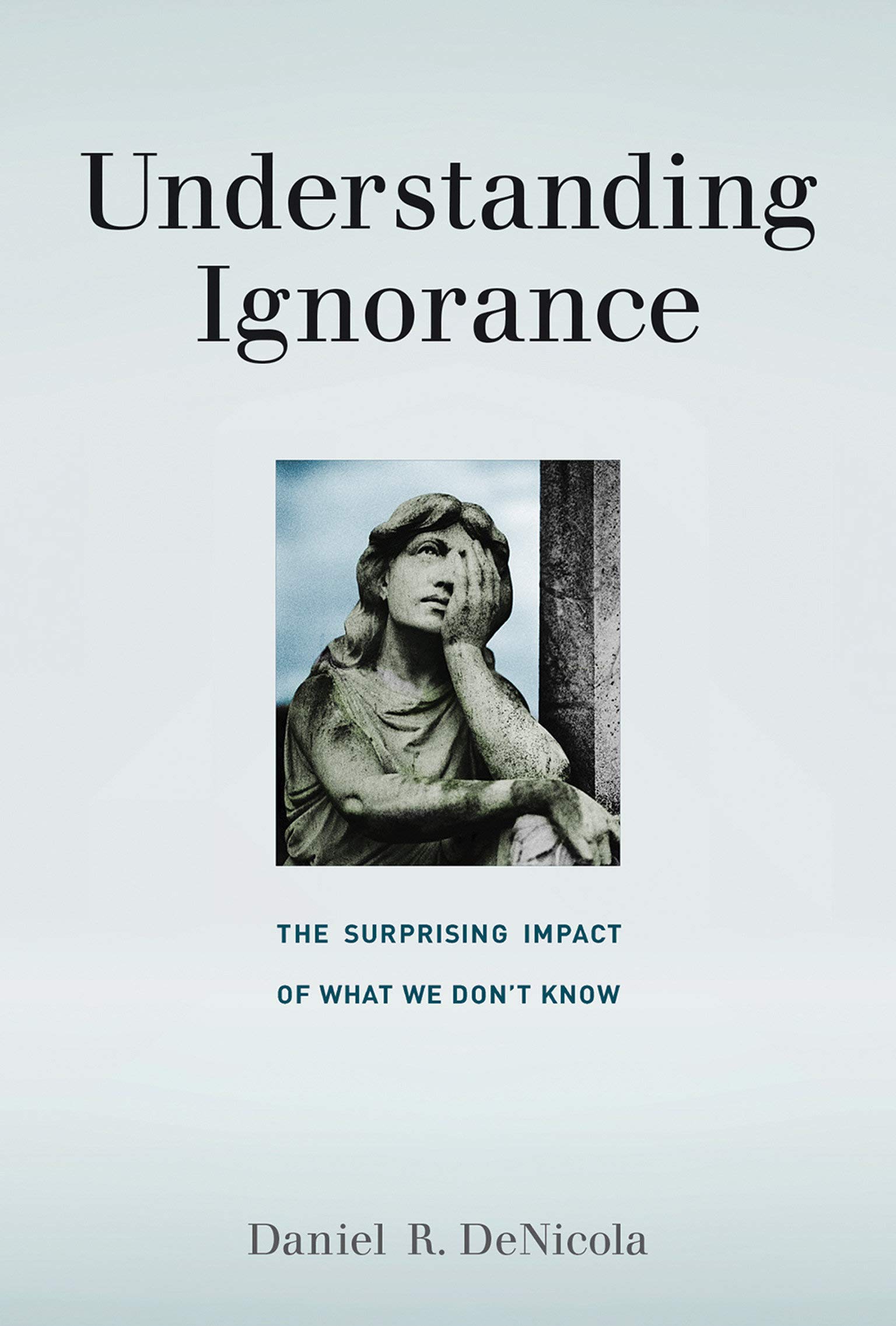
Understanding ignorance
Daniel R. DeNicola
Obtuseness is a moral failing. Failure to notice particulars is a special form of ignorance, a blindness to subtle but salient information. [...] Living morally requires more of us than innocence. To be innocent is indeed to dwell in ignorance, especially of moral matters.
Thomas Pynchon: "Ignorance is not just a blank space on a person's mental map. It has contours and coherence, and for all I know rules of operation as well."
Knowledge is not only exploding; it is evolving into highly specialized forms. [...] To cope, we increasingly rely on what Ungar calls "pre-digested knowledge packets" — summaries, abstracts, blurbs, cut lines, headlines, and articles that promise "the five things you need to know about X."
Ignorance is often the privilege of the powerful. One in power has the luxury of not needing to know.
Facts about even one physical object are inexhaustible. [...] Facts are infinite in number because the detail of the world is inexhaustible.
When we picture ignorance as a horizon, we recognize that not only it changes with our knowledge but is constructed by our knowing. [...] Our learning responds to (some) ignorance, eliminates (some) ignorance, manages (some) ignorance, creates a refined and restructured ignorance.
All that is knowable but unknown — the horizon of our ignorance — is unrealized possibility.
Yet in life as we live it, knowledge is constructed within an epistemic community; it is possessed and justified or rejected in epistemic interactions of a community. [...] Epistemic dependence is not only frequently necessary, but in some situations, such as deferral to experts, it may be epistemically virtuous or even obligatory.